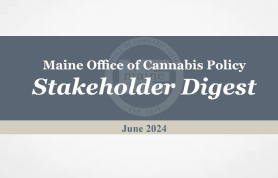The Agriculture Improvement Act of 2018 (the “Farm Act”) sparked the proliferation of Intoxicating Hemp Derivatives throughout interstate commerce.
Abstract
The Agriculture Improvement Act of 2018 (the “Farm Act”) sparked the proliferation of Intoxicating Hemp Derivatives throughout interstate commerce. Sales of these largely unregulated consumable products have swept the nation with sales revenue that rivals the combined revenue of all state-specific, regulated marijuana industries. Proponents of these mostly untested hemp-derived products see unburdened business opportunity. Opponents object to the perceived unfairness of these unregulated products in the face of marijuana’s continued federal illegality and strict state regulations. Against that backdrop, expected amendments to the Farm Act will likely address Intoxicating Hemp Derivatives, creating a moment of uncertainty for access to psychoactive cannabinoids, whether from hemp or marijuana. In this article, Benton Bodamer, Benjamin Sobczak and Taylor MacDonald explain the current state of affairs, discuss the possible implications of forthcoming federal policy decisions, and highlight the various interest groups lobbying for legislative action. Additionally, the authors argue that these new proposed regulations do not represent a solution to the federal government’s decades-old inability to safely and predictably allow access to the cannabis plant with reasonable and logical safeguards.
Keywords: Farm Act, Agriculture Improvement Act, intoxicating hemp derivatives, marijuana industry, marijuana reform, cannabis reform, federal cannabis policy, marijuana regulation, delta-8, THCA, state-licensed marijuana, illicit marijuana operations, hemp-derived products, THC, delta-9
Suggested Citation:
Bodamer, Benton and MacDonald, Taylor and Sobczak, Benjamin M., Cliffs Without Fences and Fences Without Cliffs: Exploring the Emerging Conflicts Between Quasi-Legal Intoxicating Hemp and Regulated State-Legal Cannabis (June 05, 2024). Ohio State Legal Studies Research Paper No. No. 855, Available at SSRN: https://ssrn.com/abstract=4855542 or http://dx.doi.org/10.2139/ssrn.4855542
Originally published by SSRN.
The content of this article is intended to provide a general guide to the subject matter. Specialist advice should be sought about your specific circumstances.



















